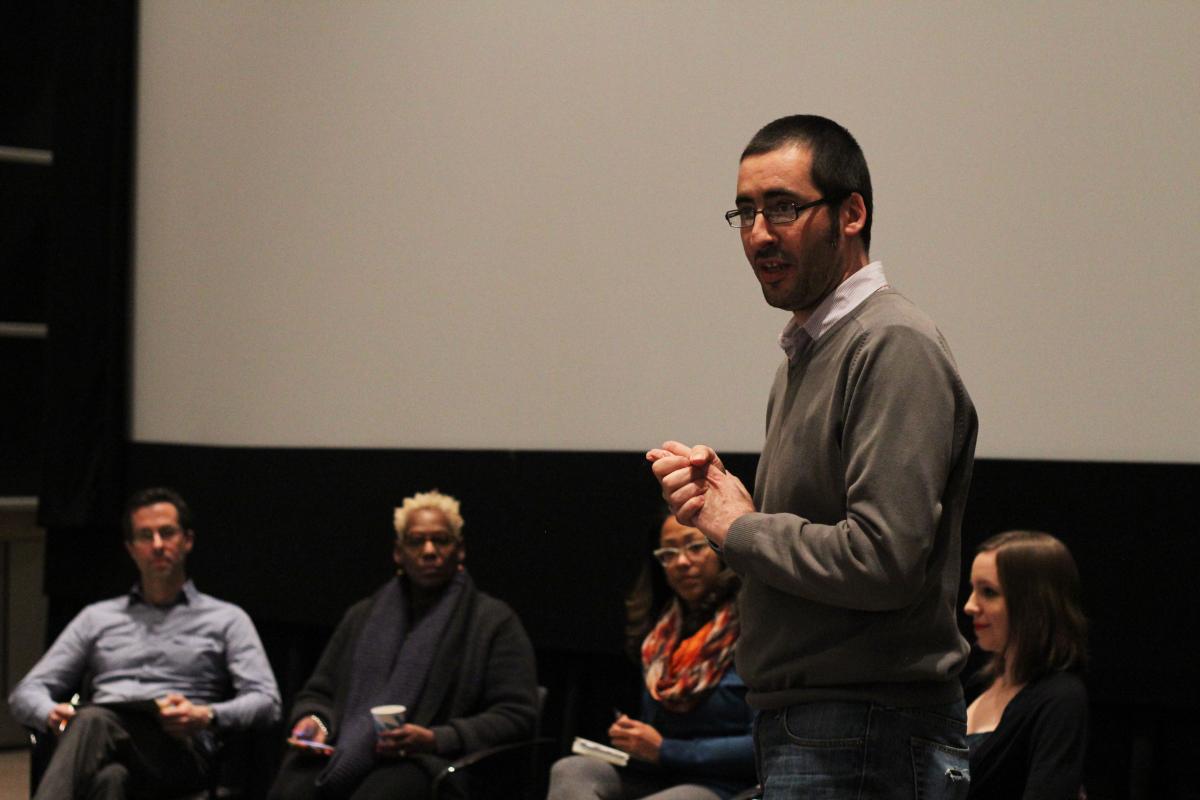Raheem, Mihailidis Win 2017 Huret Award for Research
Emerson faculty members Nejem Raheem and Paul Mihailidis will take the Fall 2017 semester off to study, respectively, effects of drought on humans and the use of media to effect local change.
Raheem and Mihailidis, both associate professors in the Marketing Communication Department, are recipients of the 2017 Judy and Bob Huret Faculty Excellence Award. The award, made possible by a gift from Emerson Trustee Emerita Judy Huret, MA ’69, is offered to associate professors looking to advance their academic careers. One to three awards are given out yearly.
Raheem, who is part of the Science for Nature and People Partnership (SNAPP) Ecological Drought Working Group, is studying how ecosystem services—those are the benefits humans derive from nature—are connected to ecological (prolonged, transformative) drought in the Upper Missouri Headwaters of Montana and the Upper Rio Grande in New Mexico.
In an extreme drought, such as what Eastern Massachusetts experienced last summer, individual trees may die and fish may have trouble reproducing, Raheem explained. With ecological drought, which happens over a decade or more, entire species of trees may die off in a particular area.
Raheem is looking at how those kinds of changes affect the different ways humans use the land, with implications for land managers and government agencies in the affected areas.
“[Land managers and agencies] may have drought plans, but they’re almost all about making water available to crops or making it available to cities,” Raheem said. “They’re almost never about making it available to the broader ecosystem community.”
To help with his research, Raheem will use mapping technology developed by federal agencies and the Emerson Engagement Lab to create a visual framework of how the landscape is being used in communities that irrigate: hunting, wood gathering, growing fruit trees, growing vegetables, fishing, etc.
During the fall semester, he will travel to Montana and New Mexico to interview stakeholders and irrigators, and will eventually write two peer-reviewed papers on his research—a task he said would take another year if not for the Huret Award.
“I’m incredibly grateful for this award,” Raheem said. “These sorts of leaves are pretty unusual at lots of schools, so getting the time to go and work like this is really incredibly valuable.”

Mihailidis is writing a book, Civic Persistence: Connective media and meaningful civic action in daily life, about how people harness their resources through civic media to make a difference in their day-to-day lives. In his award proposal, Mihailidis gave examples of small-scale civic action that has been supported by “connective media technologies,” including movements to reform school lunches, raise money, expose environmental abuse, create sustainable agriculture, map incidents of police violence, and respond to urban infrastructure problems.
“We often think of technology and social change through the lens of large-scale movements and protests about ‘big’ issues,” Mihailidis wrote in an email. “This book will show the ways that citizens are using media to make a difference in their local surroundings and to connect with fellow citizens across borders, across cultures, and across divides.”
The book is due to the publisher in December, Mihailidis wrote. He will spend the summer reviewing data he’s already gathered, as well as visiting people from the case studies he’s collected to interview them, and, of course, writing.
Categories